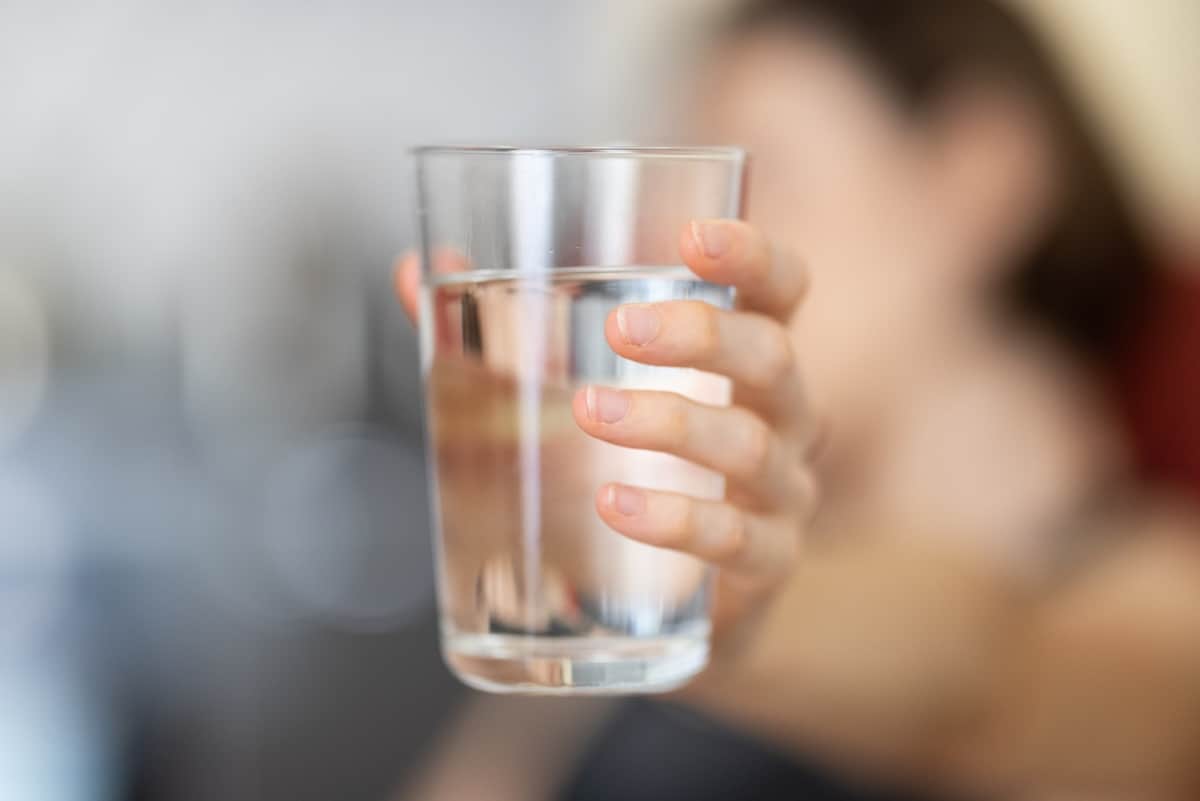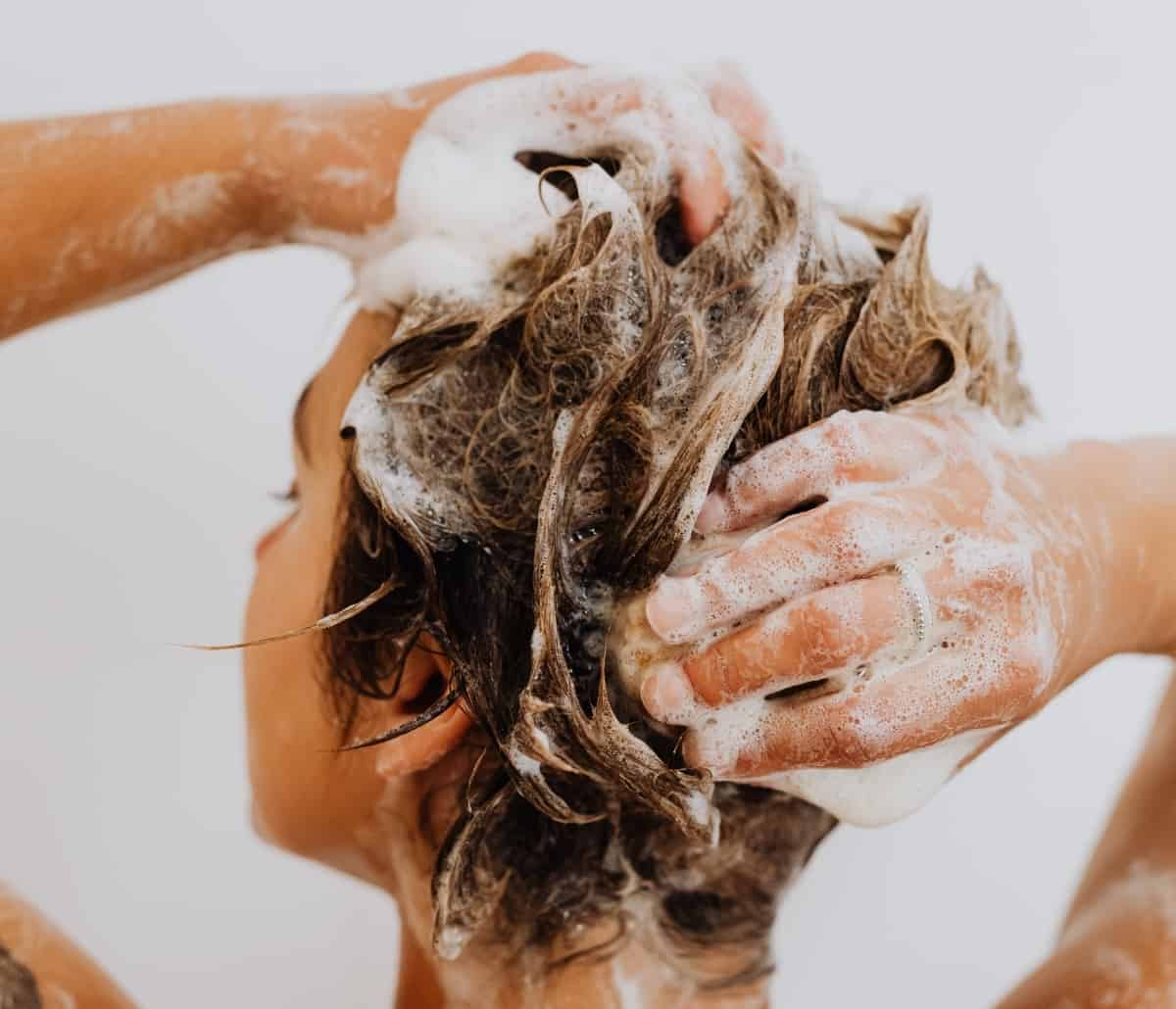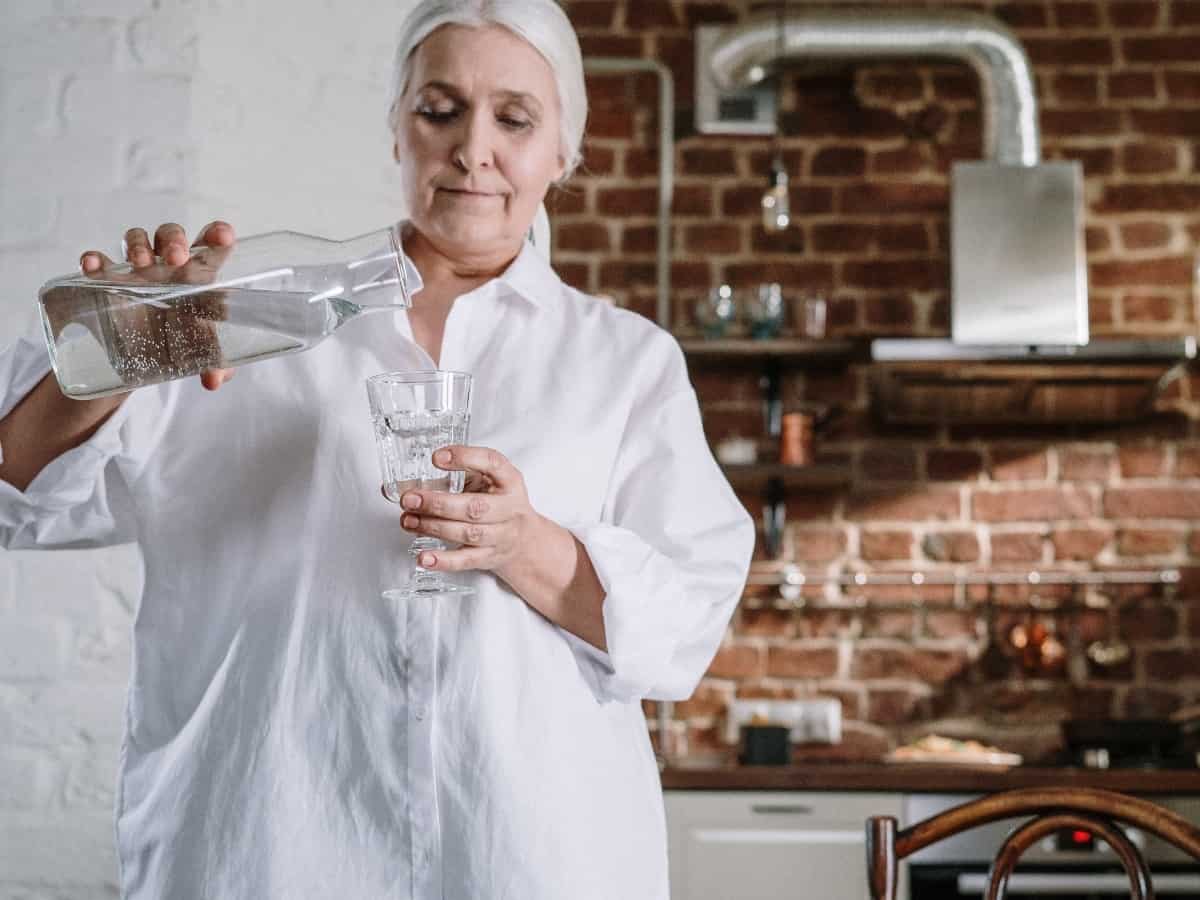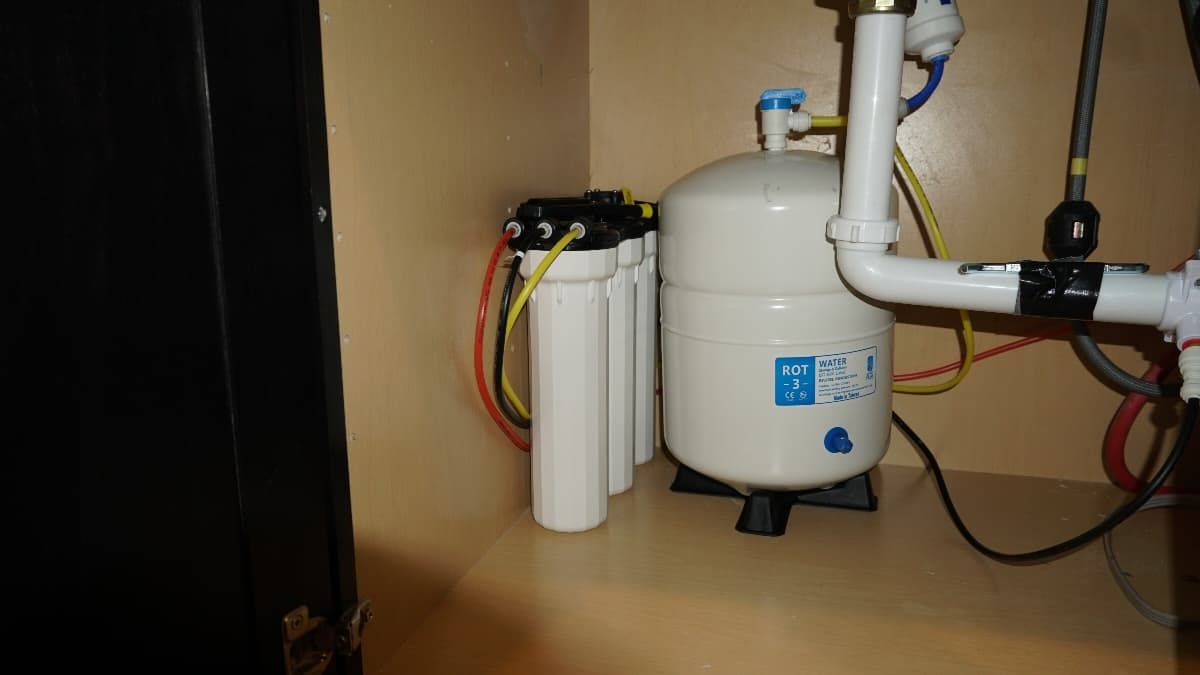If you have a private water supply or want better quality water, it’s a good idea to buy a water filter. There are many options to choose from. But, how do water filters work? Considering how water filters work is an important aspect of the purchasing process. Water filters block or trap the contaminants you want to stay out of your water supply. There are many types of filters, each with its purpose.
How Do Water Filters Work: Why Should I Filter My Water?
Chemicals in unfiltered water are bad for your hair and skin. They absorb moisture from the skin, oil from your hair, and break down collagen. Soap and other cleaners are less effective in hard water. This increases your use and costs.
Some contaminants come with health risks like cancer, infertility, birth defects, and more. Lead is common in US water supplies. A recent study found 56% of Americans drink from lead-contaminated water. This harmful neurotoxin can cause a host of health issues.
Even if you use a city water supply, you may still face water quality issues. While the water may be treated, it can pass through older pipes. These older pipes can carry lead and other contaminants. The best way to know if your water is contaminated is through regular testing.

How Do Water Filters Work: What Can Water Filters Fix?
- Bacteria – A reverse osmosis filter is the only type of water filter that can remove harmful bacteria, a reverse osmosis filter. Even these may not remove all harmful bacteria. It is easier to use chlorination or ultraviolet (UV) radiation to remove this threat. It is also important to keep up on maintenance to prevent bacterial growth.
- Sediment – This includes rust particles, dirt, and rust. Why remove sediment? Besides being unpleasant in drinking water, it can damage filters.
- Hard Water – The product of calcium and magnesium salts in your water. These can cause a build-up of scale in your plumbing system and water-using appliances. Hard water can also cause an unpleasant metallic smell and taste. Some filters can help reduce the presence of these minerals and soften hard water.
- Taste/Smell – Foul taste may come from the disinfection process or natural minerals in your water. Some filters can improve the taste or smell of your water supply.
- VOCs – These toxic chemicals easily turn into a gas at normal household temperatures. Most commonly, this means trihalomethane (THM). THMs are common in water supplied by rivers and lakes or wells treated with chlorine.
- Chemicals – Lead, chlorine, mercury, herbicides, pesticides, and more may lurk in your water. These can cause a host of health issues.

Benefits Beyond Filtered Water
- Hair and Skin – Hard water is rough on your skin and hair. It also reduces the effectiveness of your soaps and cleansers, causing you to use more. Softening hard water helps you have healthier skin and hair. It also reduces the cost of cleaning products.
- Water Savings – Hard water causes a build-up of scale in your water heater. This scale reduces its efficiency. If your family buys bottled water due to bad taste, you can also save money removing that bill.
- Appliance & Plumbing Life Span – Hard water reduces the lifespan of water-using appliances. These include your dishwasher, water heater, and washing machine. The build-up of scale requires more frequent maintenance. Softening hard water keeps appliances working better, longer.
- Lower Bills – The average family can save up to $870 by using a comprehensive water filtration system. This savings comes from reduced maintenance costs on appliances and plumbing. Lowered expenses on bottled water and cleaning supplies are also a factor.

How Do Water Filters Work: Types of Water Filtration
Polypropylene and Ceramic
These filters use densely packed fibers of ceramic or polypropylene. The physical screen this filter creates traps particles as water passes through. Over time, they become clogged and need replacement. They may be able to help soften hard water. They are unable to tackle bad smells or disinfect water. In untreated water, they may even encourage the growth of bacteria.
Granular Activated Carbon (GAC) Filter
GAC begins as renewable, natural materials like ground-up coconut shells. These particles go through two heating cycles. First, in an oxygen-free environment at 1000 degrees to remove impurities. Then, in an even hotter steam bath to activate the charcoal. The resulting carbon particles have many holes and cracks. These rough particles can store plenty of containments. Because of this, they are extremely effective filters. Unlike carbon block filters, the particles are loose and water flows quickly through.
They use a process called adsorption to filter water. Like a sticky fly trap, unwanted substances stick to the rough surface of the carbon particles. Activated charcoal can also change the composition of some contaminants.
Carbon Block Filter
Carbon block filters start by compressing a lot of activated carbon together. A single 10-inch filter cartridge has the same surface area as a 160-acre farm. Because of this, it’s highly effective at filtering out tiny debris and contaminants. It also is a slower process than other filters because of how compact it is. They are often used as a pre-filter in combination with other types of filters.
Reverse Osmosis (RO) Filters
These filters use a semipermeable membrane. This delicate membrane uses tiny pores that block unwanted substances. Before water reaches this membrane, water must be pre-filtered. This removes chemicals and sediment that can damage the RO filter. Pressure forces water through the membrane. Because the pores are so small, 95% of unwanted particles cannot pass. The process of filtration is slow so often an RO filter system uses a water storage tank. This will hold pre-treated water until it’s needed.
UV Water Purifier
UV water purifiers are an important part of a water filtration system. Most water filters cannot remove harmful living organisms. These can include bacteria, viruses, cysts, and amoeba. Some examples of harmful living organisms found in untreated water include:
- E. coli
- Cryptosporidium
- Salmonella
- Hepatitis B
- Cholera
- Dysentery bacilli
- Giardia
- Some viruses
- Fungi and algae
A UV purifier uses a germicidal ultraviolet wavelength to remove this risk. UV radiation harms the DNA in pathogenic microorganisms so they cannot reproduce. This prevents these harmful organisms from spreading disease in your drinking water.
UV water treatment is superior to chlorinated water treatment. It adds no harmful chemicals to the water. It sterilizes the water with the use of light. Chlorination treatment also cannot remove protozoa that UV treatment can. Plus these systems can remove up to 99.99% of living organisms in your water. UV systems need pre-filtration treatment to be most effective.

The Best Water Filtration for Your Home: A Whole Home System
The best option for filtering your water is a whole-home system. This will include different stages of filtration to tackle all your water challenges. With a whole-home system, you can ensure clean, healthy, good quality water flows from your tap.
Pre-Treatment: Water Softener and Filter
This system removes the heavy metals that cause hard water. This improves the lifespan of your appliances and plumbing systems. It can also improve the health of your hair and skin and improve the smell and taste of your tap water. Tired of cleaning scaly faucets? Invest in a water softener and filter system.
Reverse Osmosis Drinking Water System
This multi-stage system starts with a series of pre-filtering. This pre-filtering process uses several different filters to remove larger impurities that can damage more sensitive filters. Pre-filtering can eliminate many harmful elements in your water and reduce foul smells and tastes.
- A carbon pre-filter traps larger sediments like rust, dirt, and other unwanted debris.
- A GAC pre-filter removes particles missed by the carbon filter.
- A carbon block pre-filter removes harmful chemicals like chlorine and finer particles. This final stage before the RO membrane protects it from damage.
- The next step in a whole-home water filtration system is reverse osmosis. This slower filtration promises the best possible filtration of your household water supply. The smallest particles become trapped by the membrane. This includes pollutants like THMs. As a reminder, THMs are a product of chemical reactions in water supplies. Both city water and private wells can contain these harmful chemicals. THMs are a known cancer risk and can cause birth defects and infertility problems.
- Finally, an in-line polishing filter removes bad taste and odor and improves the pH level. This provides water as good as any bottled variety right from your tap. Why does pH balance matter in water? Acidic water causes weight gain and reduced immune response. Alkaline water blocks your body’s absorption of key nutrients, leading to health issues.
Ready to Improve Your Water?
ONIT Home offers friendly experts who can answer your questions about water filtration. Test your water, assess your needs, and install your water filtration system with pro help. With three different system options to meet your household needs, find your match. Equipment and installation are affordable and they offer smart financing. A solid warranty, with an available maintenance package that includes parts and labor, provides peace of mind. With added maintenance, you can rest easy knowing your system is working at its best. Don’t wait, improve your water quality today by contacting ONIT Home for a free consultation.
Visit us online or give us a call right now at 1-833-433-0331!



